2025 to be the year of EVs, says TCS study
By CARSIFU | 16 January 2025
DETROIT: A new study by Tata Consultancy Services (TCS), a global leader in IT services, consulting, and business solutions, reveals that more than 6 out of 10 (64%) consumers are likely or very likely to consider an electric vehicle (EV) for their next purchase.
The TCS Future-Ready eMobility Study 2025, a comprehensive report on how EVs are shaping the future of sustainable mobility, also highlights that while 60% of consumers said charging infrastructure was a major challenge, 56% were ready to pay up to $40K for an EV.
This study surveyed over 1,300 anonymous respondents across North America (USA, Canada), United Kingdom & Ireland, Continental Europe (Belgium, Denmark, Finland, France, Germany, Netherlands, Norway, Sweden, Switzerland) and APAC (China, India, Japan, ANZ).
The respondents for the survey included transport manufacturers, charging infrastructure players, fleet adopters, consumers and EV adoption influencers.
Sustainability and lower operational costs were key factors driving EV adoption, according to the study.
While consumers and influencers highlighted a clear motivation for EV adoption as ‘environmental sustainability’, the environmental benefits did not match the expectations of many EV influencers.
Nearly 48% EV influencers said EVs increase the overall carbon output just as much as they reduce it, with 10% even saying EV adoption is negatively impacting the environment.
Commercial fleets maintain a positive outlook towards electric mobility, with a sizable percentage — 53% — pointing to reducing operational costs as a primary motivation.
Fleet adopters were willing to pay a premium for EVs than for traditional internal combustion engine (ICE) vehicles.
Cummins global chief information officer Earl Newsome, said, “The future of mobility is electric, connected, and sustainable—a transformation that will redefine industries and communities alike. The TCS Future-Ready eMobility Study 2025 provides a powerful lens into the challenges and opportunities shaping this journey, emphasizing the critical roles of resilience, innovation, and collaboration. At Cummins, in line with our Destination Zero strategy, we are dedicated to advancing industry-wide decarbonization with a diverse range of power solutions. Our ability to deliver technologies today, while innovating zero carbon solutions, and building partnerships will ensure a sustainable and enduring future of mobility."
Despite the growing interest in EVs among consumers, significant challenges remain, particularly in the areas of charging infrastructure and technological advancements.
While 74% of EV manufacturers said the lack of appropriate charging infrastructure remains the biggest obstacle limiting growth in the EV market, 55% have already started investing in innovation for battery technology advancements.
Nearly 78% are making investments to reduce vehicle costs to cater to growing demand for EVs.
TCS president of manufacturing Anupam Singhal said, “The electric vehicle industry is at a defining crossroad, navigating the complexities of scale and transformation. While nearly two-thirds of consumers are open to choosing electric for their next vehicle, manufacturers face challenges like advancing battery technology, complex vehicle designs, and production economics. At TCS, our Future-Ready Mobility vision focuses on creating an interconnected ecosystem powered by AI and Gen AI to drive smarter decision-making, enhanced customer experiences, and deliver scalable, sustainable solutions. By addressing these critical challenges, we are accelerating the global shift toward electrified and sustainable transportation.”
The survey indicates that 90% of manufacturers believe that improvements in battery technology will enhance range and charging speed and will significantly impact the design and performance of EVs in the near term compared to other technological advancements.
Key results from the survey, which can be found at TCS Future-Ready eMobility Study 2025, include:
- 90% EV manufacturers and 84% of EV Influencers said battery technology improvements to optimize range and charging speed will have a large impact on design and performance of EVs
- 74% of manufacturers believed charging infrastructure remains the biggest obstacle limiting EV market growth
- 72% of EV charging infrastructure players are expecting significant mergers in the EV space driven by financial viability and scaling challenges
- 41% consumers said that an acceptable EV range on a single charge is 200-300 miles, followed by 31% respondents who felt 300-400 miles is a better deal
- 63% EV influencers said their primary motivation for EV adoption is to achieve net-zero goals and reduce carbon footprint
- 55% of EV manufacturers are investing in R&D for battery technology advancements, while 78% are investing in vehicle cost reduction
- 72% US consumers are likely or very likely to purchase an EV as their next vehicle, compared to less than 31% of Japanese consumers
Tags
Autos News
Reviews
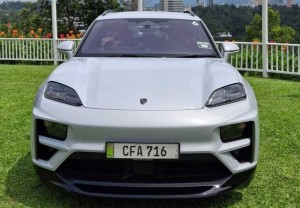
Porsche Macan EV: Re-energised exhilaration
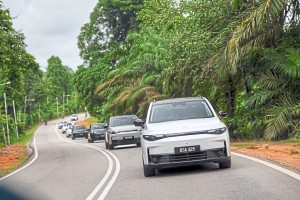
All-electric Leapmotor C10 SUV ticks all the right boxes
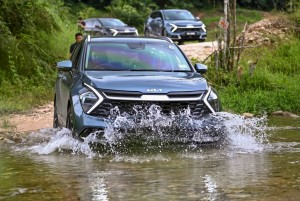
New Kia Sportage: Versatile and stylish

6.6
Triumph Scrambler 1200 X: A good balancing act
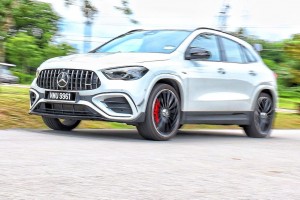
8.3
Mercedes-AMG GLA 45 S 4Matic+: Poking the pocket rocket
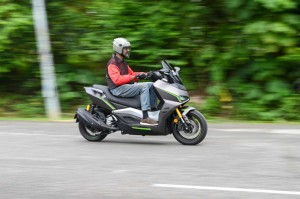
8.0
Moda Sporter-S 250: A new player in town
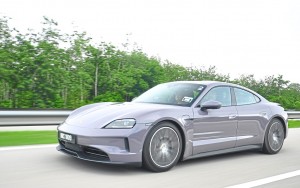
Porsche Taycan E-xperience drive: Kuala Lumpur - Kuantan

Mercedes-Benz E 350 e PHEV: Refined elegance, timeless prest...
Videos

StarCarSifu Editors' Choice Awards 2024: Top winners

The Snowball – Lamborghini’s Heartwarming Christmas Story of...

EVOGO battery swapping solution showcased at IAA Mobility 20...
